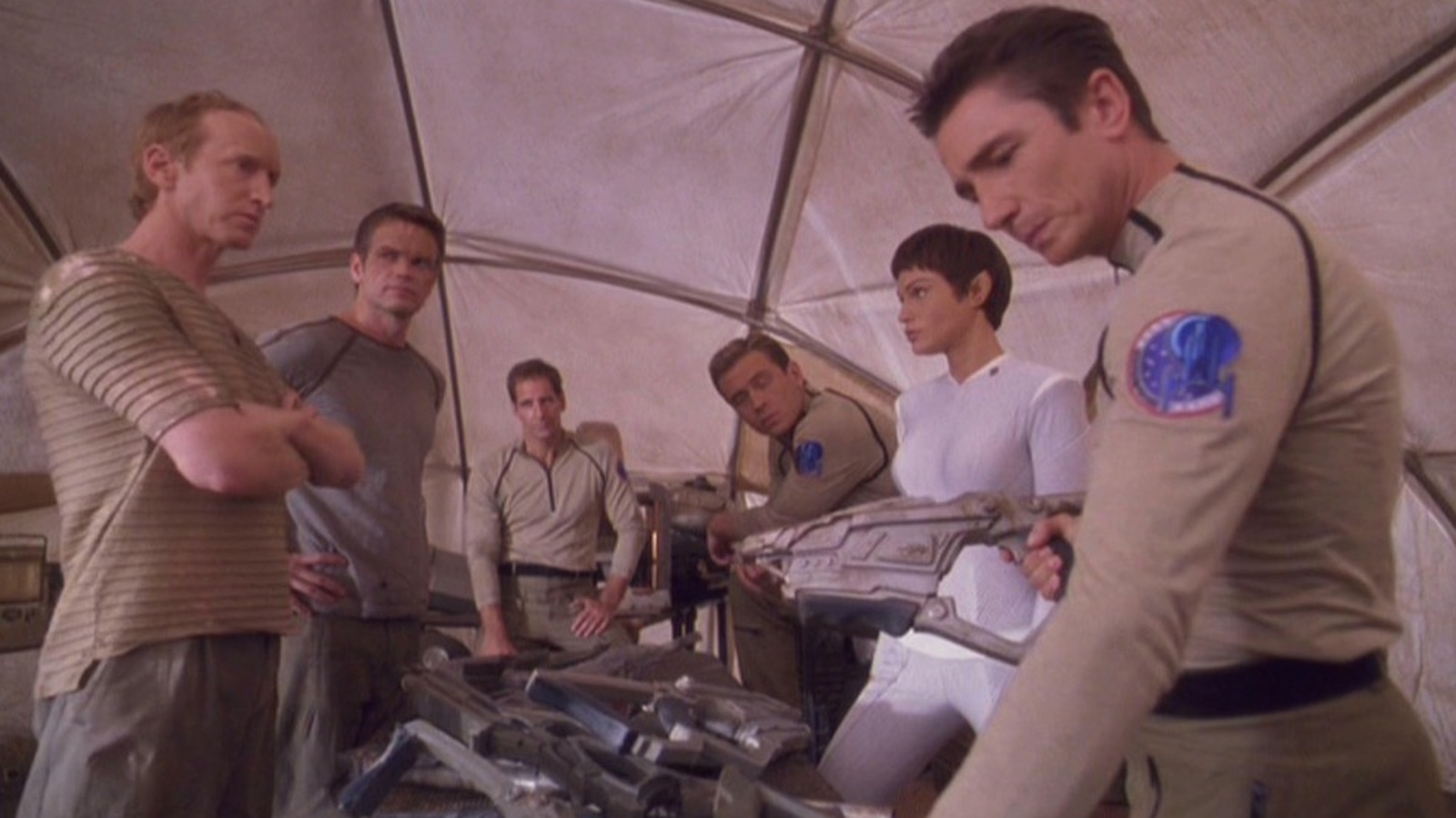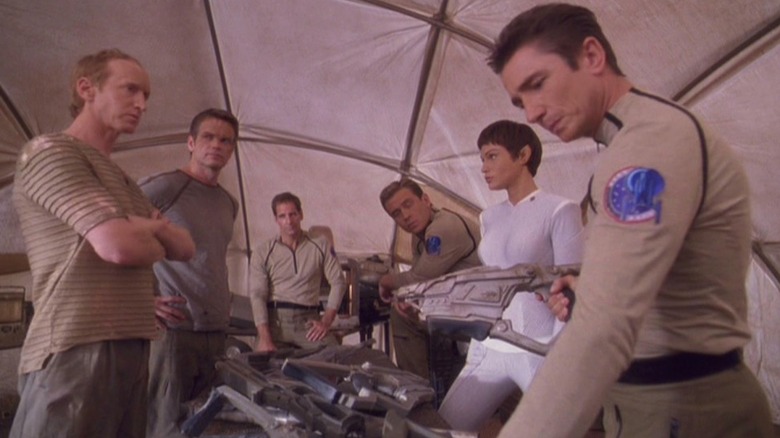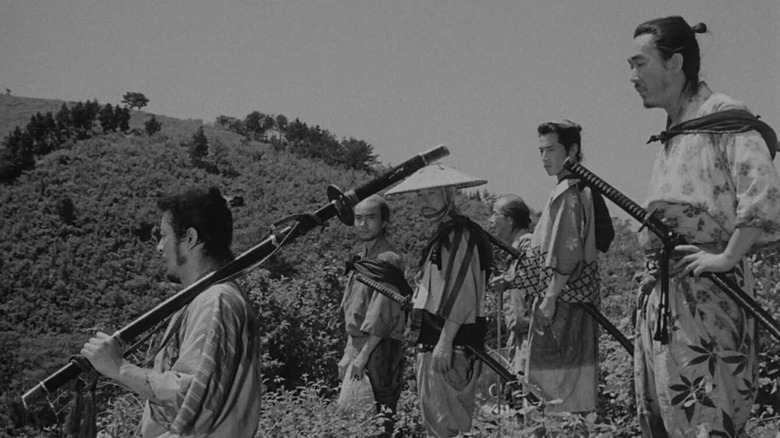“Seven Samurai” by the Japanese master Akira Kurosawa is perhaps the most remade film ever. The film from 1954 is indeed about seven samurai recruited to protect a farming village from bandits. The setting, themes and characters are Japanese, but the premise is evergreen. “The Magnificent Seven” is just “Seven Samurai” but with cowboys. “A Bug’s Life” retold the story with, well, bugs. The “Star Wars: The Clone Wars” episode “Bounty Hunters” recruits the seven from the Jedi Knights and alien mercenaries.
“Star Wars” creator George Lucas is a well-known Kurosawa fan. (Lucas even helped him finance his 1980 epic “Kagemusha.”) The galaxy far, far away isn’t the only space series that could riff on “Seven Samurai,” however. “Star Trek: Enterprise” called the premise of its Season 2 episode, “Marauders.”
But first why is Kurosawa’s films so often remade in spirit (except that they are so good)? One reason is that it is easy to translate. Kurosawa often drew from English-language works; he even received some hometown criticism back in the day for supposedly “pandering” to Western audiences. His movie “Throne of Blood” is “Macbeth” but moved from 11th century Scotland to feudal Japan. “Ran” did a similar relocation for “King Lear,” while his noir “The Bad Sleep Well” drew from both “Hamlet” and Alexandre Dumas’ French revenge drama “The Count of Monte Cristo.” Kurosawa’s kidnapping thriller “High And Low” is based on a 1959 Ed McBain novel, “King’s Ransom”.
Like his muse, Shakespeare, Kurosawa’s stories had universal cores and in turn found their way back to influencing Western films. Francis Ford Coppola has cited “The Bad Sleep Well” as a major influence on “The Godfather.” Like “Seven Samurai,” “Yojimbo” (in which Toshiro Mifune plays a ronin who plays two rival gangs against each other) has also been acclaimed or remade countless times. That brings us back to “Marauders”.
Marauders is Star Trek meets Seven Samurai
“Enterprise” was a prequel series that followed first starship Enterprise explores the final frontier a century before Kirk and Spock did. In “Marauders” (written by David Wilcox, in his only “Star Trek” credit), the Enterprise must refuel with deuterium. They happen upon a foreign mining colony, but the natives are reluctant to trade even though it’s all their business.
It turns out that a band of Klingon pirates have blackmailed the colony, taken their deuterium and only paid the miners with their continued lives. So Captain Archer (Scott Bakula) and his bridge crew off seven decides to teach the locals how to defend themselves. Cue a training montage and a third act where the Enterprise crew and the villagers drive off the Klingons with some clever tricks and traps.
“Marauders” is a mediocre episode, but it’s symptomatic of bigger and more serious problems that “Enterprise” experienced in Season 2.
“Enterprise” was the first “Star Trek” series since the original not to run for seven seasons. Why? Because it had a rough start and never recovered. Producer Rick Berman insisted on playing it safe, so no changes to the “Trek” formula even though they might have fit organically in a prequel like “Enterprise.” Bakula has also said that the demand for 26 “Enterprise” episodes per season was too much. Driven by these dual mandates, the writers began to recycle episode premises.
René Auberjonois, who had been part of the main cast of “Star Trek: Deep Space Nine”, guest starred in the “Enterprise” episode “Oasis”. It wasn’t lost on him that the episode was a remake of the “DS9” episode “Shadowplay.” He recalled:
“I sat with Scott Bakula at lunch about two or three days after shooting the episode. He said, ‘I like this script.’ I think this is a good one. I said, “Yeah, we did this in Season 3.” And he looked at me and said, “What?” I said, “It was the same kind of story.” It wasn’t really a closure, but when you’ve done so many years of writing stories, there will be recurring themes.”
By “Enterprise” Season 2, around the time “Marauders” came along, it felt like the show was running on dilithium fumes. That’s why you have an episode that uses such a simple and familiar idea as a “Seven Samurai” homage, one that doesn’t feel specific to the show at all. “Enterprise” struggled to create its own identity unique from other “Star Trek” shows. “Marauders” is both a result of that and a small part of its cause.






